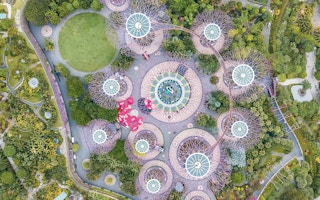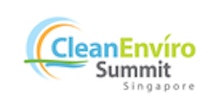Air pollution, increased urbanisation, deforestation—these are just some of the major environmental challenges that Southeast Asia currently faces. Though these problems affect rural and urban communities across the region in different ways, they all have one factor in common: climate change.
As global greenhouse gas emissions continue to rise, Asean nations, including Singapore, are bearing the brunt of intensifying climate impacts such as rising sea levels as well as more intense extreme weather events.
The reaction to this climate challenge, at the government, community, and business levels, has been to ramp up the search for sustainable solutions that help reduce waste and emissions, improve resource efficiency, and reduce pollution.
It is in response to this growing demand that Singapore, whose government has designated 2018 as the Year of Climate Action, has been hosting the biennial CleanEnviro Summit Singapore (CESS) event, which brings industry and government leaders from around the region to identify, develop and share solutions for Southeast Asia’s complex environmental challenges.
This year’s CESS, which is themed ‘Transforming Tomorrow’s Cities with Clean Environment Solutions’, will, in addition to revisiting topics like waste management and cleaning, explore three new environmental challenges: pest management, clean energy, and pollution control.
As Dalson Chung, managing director of CESS—which is hosted by Singapore’s National Environment Agency—notes: “These [issues] are interconnected and crucial to cities looking to create clean, liveable, and sustainable environments.”
Slated to take place in Singapore at the Sands Expo & Convention Centre at Marina Bay Sands from 8 to 12 July, CESS is held in conjunction with the World Cities Summit and the Singapore International Water Week.
Now in its fourth edition, this year’s event will showcase the latest in green technology and solutions via a variety of test beds, and offer opportunities to deep dive into the topics through several platforms, including the new Clean Environment Leaders’ Summit, says Chung.
The leadership event is a customised programme for high-level leaders, decision-makers, and policymakers to engage in multidisciplinary issues from a macro perspective, he explains.
Other sessions at CESS, a global platform, will see government and industry leaders spearheading discussions to identify and develop practical and sustainable solutions for the cities of tomorrow.
Looking to Singapore’s land constraints and the limited space in its offshore landfill at Pulau Semakau, Chung notes that choosing sustainable waste-to-energy technologies, recycling solutions, and innovative cleaning strategies is crucial for the city-state.
This is something that neighbouring nations like Japan and China, both of which are facing similar land challenges, have been actively developing, in addition to cleaning solutions that require less manpower, he adds.
Another initiative at CESS that will showcase cutting-edge sustainability solutions is the Innovation Pitch, says Chung. This is a platform for innovators to sell their ideas to all CESS visitors, some of whom may be investors and venture capitalists.
One initiative that will be highlighted this year is a project by Singapore Polytechnic, which employs green technology in the recovery of precious metals from e-waste, shares Chung.
“Current e-waste recycling operations usually involve the use of hazardous chemicals which pose high risks to industrial workers and the environment,” Chung notes.
“With technology, the innovators have found ways to ensure that recycling and proper disposal of e-waste is safe and sustainable,” he adds.
Another technological trend that will be front and centre at CESS 2018 is robotics and automation, says Chung.
Companies in Singapore and around the world have started to use artificial intelligence for waste management, in processes such as mechanising and automating sorting recyclables he notes.
Machine learning-enabled robotic devices that mimic the human eye in the identification of recyclables can help reduce the need for workers to perform such operations manually, Chung explains.
He adds that it also makes waste management operations more efficient by enabling the use of virtual reality remote technical assistance, where site technicians wearing Wi-Fi-enabled headsets may seek assistance from manufacturers directly to troubleshoot system faults.
Robotics can also transform cleaning processes, Chung notes. For example, machines can map out the areas to be cleaned autonomously, with minimal human intervention. This helps to increase the productivity of those involved in cleaning operations, freeing up their time to do more value-added tasks.
“In the near future, we can expect a wider use of such robotics in the industry and probably those with more innovative functions such as cleaning robots taking lift to clean other floors,” says Chung.
He adds that participants at the CESS conference will be able to gain useful insights about waste and resource management challenges and opportunities alike from the world’s foremost environmental leaders and technical experts.
Ultimately, Singapore is Asia’s hub for developing and testing smart cleantech solutions, and platforms like CESS accelerate the adoption of these solutions across the region, says Chung.
He adds: “In the face of challenges brought about by rapid urbanisation, it is critical to throw the spotlight on global best practices, and to seek out meaningful collaboration across local and international stakeholders.”
The CleanEnviro Summit Singapore will run from 8 - 12 July 2018 at the Sands Expo and Convention Centre in Singapore. To attend, click here.











